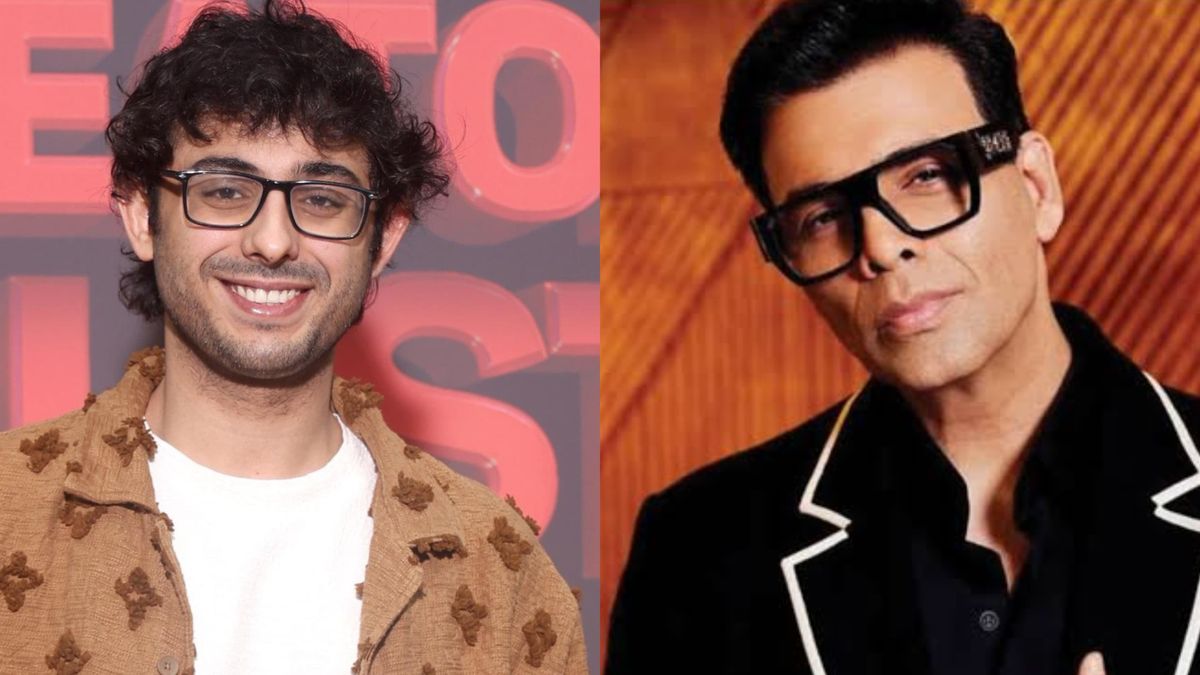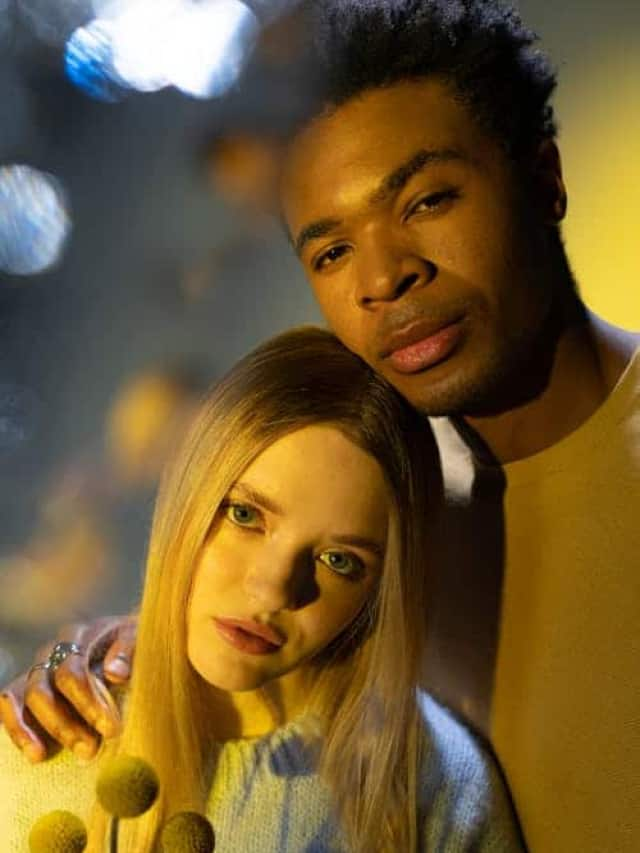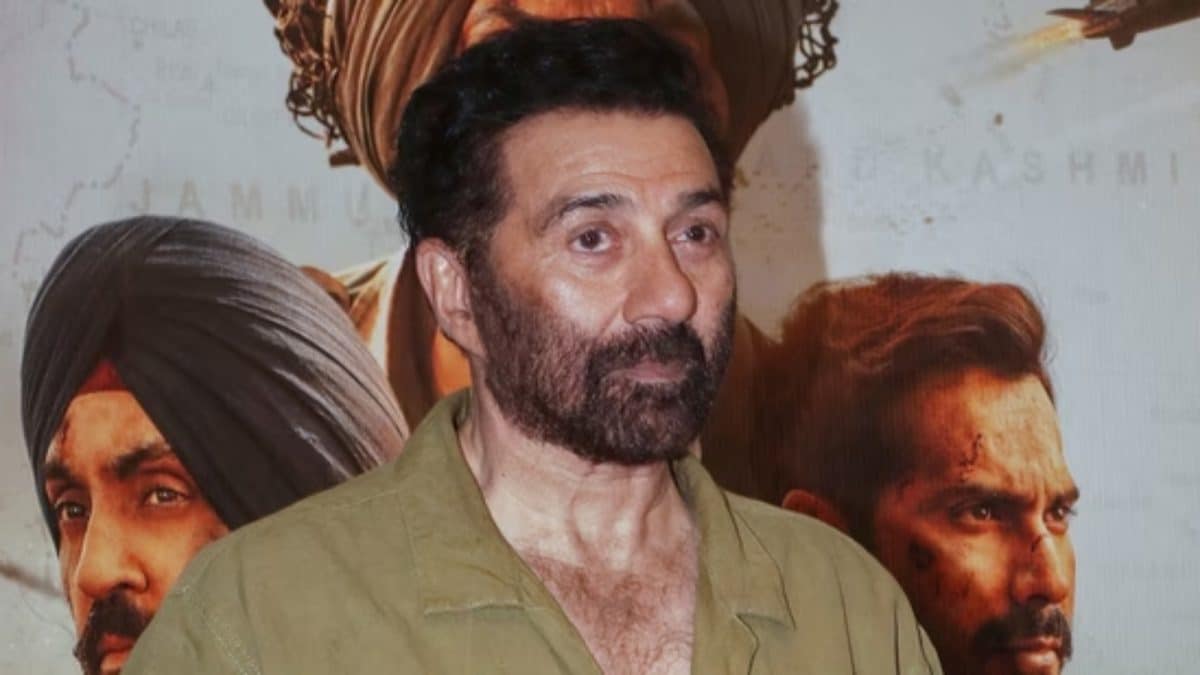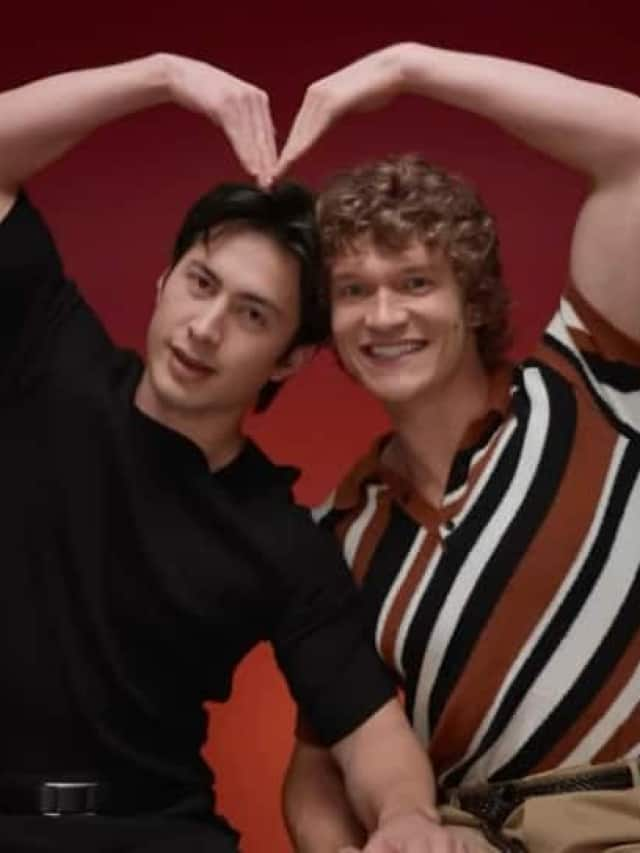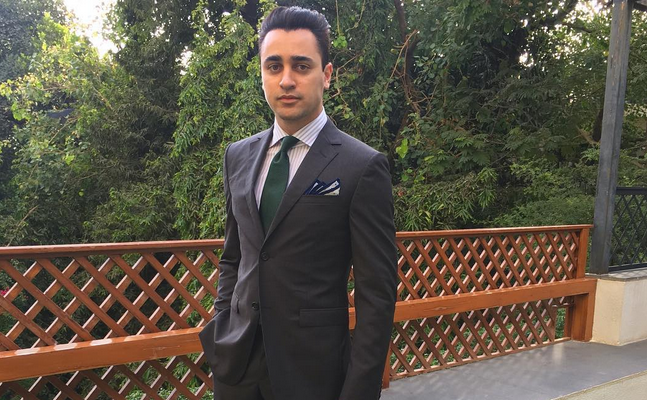
“There is no greater art form than cinema” – Imran Khan
When you speak to Imran Khan, you realize he is a patient listener and somebody whose heart is filled with empathy. The actor decided to move away from the arc lights sometime around 2015-16 when he felt he was not happy with the kind of work he was doing. A couple of his films had not done well but what really made him arrive at the decision to discontinue working in the Hindi film industry was the kind of material he was getting to work on as an actor.
A while back, Imran, who is not very active on social media and sporadically uses Instagram through his laptop, realized his fans, who had showered a lot of love upon him during the years he was acting actively, were talking, writing about and discussing a potential comeback of their favourite actor. Even the ones who were very young when Imran started acting in the movies, had devoured many of the films he had done through TV reruns and OTT viewing and were hoping to see the actor back on the screen again. The love of his fans, as Imran confirms himself, is the real reason behind him wanting to get back to the movies.
In this interview, Imran talks about his journey in films, wanting to get back to the movies, love for filmmaking, what makes him stand up for social issues, the importance of addressing mental health concerns, the kind of cinema he wants to be a part of and more.
Sometime in 2018, you gave a brief interview in which you spoke about why you don’t miss acting anymore. In the interview, you said how you were working on a period film once and the director was not too particular about getting the details right. You mentioned how you often ended up collaborating with professionals who were not very passionate about the job they were doing. You cited it as the primary reason behind not wanting to do films anymore. Why did you decide to get back?
For me, it was a process of evaluating what was relevant to me. I had done a couple of films in 2013 which had not done well. I had done ‘Matru Ki Bijlee Ka Mandola’, ‘Once Upon Ay Time in Mumbai Dobaara!’ and ‘Gori Tere Pyaar Mein’. Each of these films had failed miserably at the box-office. Around that moment, I started taking stock of things and said, “These films that I have made have not done well. Let me look at the films that have done well recently.” I looked at the films which had been the most successful in those years. I asked myself, “Do I wish to have been in those films? Had they brought those films to me, hypothetically, would I have wanted to be in them?”. The answer was no. I was not creatively excited by those films either. Then, I clarified that understanding to myself. I did not want to do this for financial gain. I was privileged to be well-compensated for my work as an actor throughout my career. That was a great blessing and privilege. Having made those films, thereafter, I was not driven to take up more work because of the pay cheque. I could choose to do a film for a very high pay cheque even if I did not believe in it. I will not judge anybody for this reason. But, for me, that was not the reason. I then asked myself what are the reasons to take up a film. You take it up for different reasons. You take it for the finances. You take it up because you see it as a good career move, something that will raise your value. You take it up because you are so creatively excited by the material that you just want to make the film. Whatever happens or doesn’t happen is secondary. I decided that the first two reasons were not compelling enough to drive me to do anything. I was blessed that I was financially secure. I was not motivated by the notion of great stardom or financial success. I was driven and motivated by the idea of having an exciting creative collaboration. I feel excited about a group of people getting together and wanting to tell a story. I then kind of decided for myself that unless I heard a ghanti (bell) ringing in my head, I won’t take up any work (laughs). The first two are easy enough to gauge. The third one, you read a person or a story. In your heart, you should feel I really want to associate myself with it and want to spend my time doing it. I decided that unless I felt that way, I didn’t want to take up any new work. To me, that is dishonest. Months turned into years. It was not an active one-day decision. It was just me saying that I don’t want to do this as I don’t feel like doing it.
Your fans had been wanting to see you back on the screen for a while. What made you decide to come back?
Part of this was a journey I had to go on for myself. Any kind of creative person, whether you are a poet, sculptor or musician, has to also live a life. That is where the material comes from. That is where the thoughts and ideas come from. You need to live life and gather experiences. All of those experiences will then seed into your craft and then, into your art. I guess I had to take a certain amount of time, go through a journey and find a place where I felt I had an understanding of how I want to engage creatively. There should be that fire within me that pushes me towards doing something. I now have something inside that I want to share and communicate. I took as long as it took. In the past one year, I started feeling that itch. I felt let’s do something creative. A major part of the journey was significantly accelerated by the online fan community. Over the past year, people were making these memes. Once in a while, my friends would send me screenshots. I was not active on any of the social media accounts but my friends would show me all these memes and posts. I remember seeing this one post which had a collage comprising posters of my films and featured text which said, “Life was good when this guy was doing rom-coms.”
As I started to read, hear and perceive more of those, I started feeling that many people out there are reaching out to me and at some point, I started feeling that if I didn’t acknowledge them and say “I hear you”, it would be very rude of me. Up until that point, things were one-sided. People were making memes and writing down comments. I felt it was rude of me to ignore it or not acknowledge it. I felt compelled to stick my head out and say, “Hi guys! I hear you”. I made this post first on Thread but nobody goes on Threads, so nobody saw it (laughs). I took a screenshot of that Thread post and shared it on Instagram. Instagram exploded and people started messaging me. It was very much a case of online fandom reaching out to me. People started saying, “where are you, we want to see you”. A major reason behind my decision to come back to the movies was the response to that.
Back in the day, you attended the New York Film Academy. You wanted to become a filmmaker. You came to Mumbai, pitched a few scripts. A TV episodic you had written was frisked by somebody. In the year 2018, you directed ‘Mission Mars: Keep Walking India’, which was a short film/commercial which was a part of the Johnny Walker campaign. Are you also looking for opportunities as a filmmaker?
Absolutely! For me, the entire process of filmmaking is very, very exciting. I love and enjoy all parts of it. I wrote the screenplay for that short film along with a good friend of mine. Before and after that, at various point in the last fifteen years, I have sat down to write a feature film screenplay. But, I have not been able to crack one yet. It is something that is on my to-do list. I have not yet gotten there. At this moment, the first thing I want to do is to take on some work as an actor. Directing a film takes a lot of work (laughs). So, I might want to that a little later.
Do you plan to make another short film or commercial in the near future?
Yes, I would love to bring myself up to that space again. Writing or directing a feature film is a mammoth undertaking. Anybody who has made even one film will tell you it is a big task.
You signed ‘Jaane Tu…Ya Jaane Naa’ in the year 2005. Jhamu Sughand was associated with the film as a producer. He passed away and the pre-production work on the film stopped. After a while, Aamir Khan Productions came on board. The film finally released on 4 July, 2008. You were in Mumbai trying your luck as a screenwriter and filmmaker. How did you end up being a part of this film as an actor?
The incident about me taking a script to a channel and it getting stolen happened in early 2005. In the aftermath of that, I found I was completely powerless and could not catch hold of the guys who did this to me. I had gone into this meeting. It had been set up through contacts. These people had no context of my family relationships or background. To them, I was just a kid off the street. That is why they felt comfortable enough to lift my script. I was helpless and could not hold them accountable. I was very upset about it. If I had some name or recognition of my own, they might not have done this. To what extent that is true is a debatable point. I was 22 at that point. I had spent a few months roaming the city and trying to find a position as an AD (assistant director). I had met a few people. One guy was working in the production department. He reached out to me and said that Abbas Tyrewala is making a film and they are looking for new faces. They want you to come and audition for a part. I was aware of Abbas as I had seen his name on the credits of a few films I had liked. I had particularly appreciated his work as a lyricist. He had written lyrics for some songs I thought were very good. He had done some amount of screenwriting by then also. Since I recognized his name, I decided to meet him. We hit it off well in the very first meeting. I screen-tested for the part. Nandini Shrikent was the casting director of the film.
Did a lot of Hindi films had casting directors back then?
The concept of a casting director was fairly new to India then. I think Nandini was one of the first people to work in this space. Today, she is one of the most renowned casting directors in the industry.
Apart from ‘Jaane Tu…Ya Jaane Na’, Jhamu Sughand was producing ‘Gulaal’ (2009) and ‘Johnny Gaddar’ (2007) at that point. Aamir Khan came on board to produce the film and that’s when the film was revived. Even Mansoor Khan, who had taken a sabbatical from films, got back to produce this film. Was everything smooth from this point onwards?
No, it was quite a journey. From the time I met Abbas to the time we started pre-production with Aamir Khan Productions, two years passed by. We had a period of six months in between when Abbas and I had no producer. It was just him and the script. We were roaming around the town trying to find a producer. During that time, a couple of actors who were attached to the project dropped out of it. Aditi, Meghna and Shaleen were being played by other actors at that stage. By the time we finally got around to restart the project, they started the casting process again. We went through a whole carousel of actresses before we came to Genelia (Deshmukh). We wrapped up the shoot quickly. After that, came the post-production process which took quite a bit of time. We wrapped up the film in January or February of 2007. It took a year and a half for it to then release.
My first memory of you seeing you on a television screen, or any screen for that matter, is in the first promo of ‘Jaane Tu…Ya Jaane Na’. It was a very unique promo. One saw you posing behind a cardboard cut-out which had fake muscles drawn around it. Suddenly, Genelia comes, pushes you and the cardboard cut-out falls down. It was a spoof on conventional star-kid launches.
(Laughs) Yes, it was quite unique. They planned and executed the entire thing quite nicely.
You had trained as a filmmaker. Once you signed ‘Jaane Tu…Ya Jaane Na’, did you undergo any training as an actor? Did those dance classes and horse-riding classes happen?
I spent a couple of months doing all that prep in the classic Bollywood style. Abbas talked about this process to me when we started prepping for the film. Back in the ‘60s and ‘70s, when an actor would train to be a leading man, there were parts of the craft which were expected. For instance, you could not be an actor without learning how to ride a horse. Abbas ended up writing these conditions into the screenplay of ‘Jaane Tu…Ya Jaane Na’. He said that he wanted to make a modern film that pays a homage to the classic stud. He told me, “Heroes don’t ride horses anymore. I want to make a film where the hero rides a horse.” Right after I signed the film, I had to start training in horse riding. I went to this place near Film City. Jeetu Verma was my trainer. Jeetu was the brother of Tinu Verma and Manohar Verma who have been successful stunt directors. The Verma brothers have been into the stunt business but they have different areas of specialization. Jeetu Verma is the person who trains actor to ride horses. He is a great rider himself. He had a stable of these filmy, trained horses and he would conduct workshops there. I would be up at 5 o’clock in the morning and head to the Verma brothers’ ranch in Goregaon. I did my horse riding training over there. I also did fight training for a while. It was separate from training.
‘Delhi Belly’ (2011) remains one of the most exciting films in your filmography. The film went through a very long journey. It got shelved once, had a delayed release but eventually, ended up becoming a cult film.
Yes! It was a five-year long journey.
I remember watching an interview of yours closer to the release of ‘Luck’ (2009) wherein you spoke about ‘Delhi Belly’. You said that whenever this film releases, posters will be destroyed and your effigies will be burned. Thankfully, none of these things happened and the film had a smooth release.
I don’t know if you are aware of this but back then, we did face a lot of issues. There were a lot of protests against the film. They slapped obscenity cases on all of us. Several cases were filed against Aamir, Abhinay (Deo) and myself. Well, anybody can file a case for vulgarity, obscenity, and corrupting the youth of the nation (laughs).
Ranbir Kapoor was the first choice for Tashi Malhotra, the character you played in the film. Bck then, he said in an interview that he was not sure about doing such an unconventional film at an early stage in his career. You, however, did not have any apprehensions and agreed to do the film immediately.
‘Delhi Belly’ was one of the most creatively exciting projects for me. The moment I read one of the audition scenes for the film, I had this feeling in my gut that this is the one. This is the film you had been wanting to make. Because I got to do a film like that so early in my career, thereafter I started to make other films that were arguably more mainstream and had bigger budgets. I was finding less and less satisfaction in those films.
You found the most success in romantic comedies. You, however, did films in several other genres. ‘Delhi Belly’ was one such film that achieved great success. You doing films like ‘Matru Ki Bijlee Ka Mandola’ and ‘Once Upon Ay Time in Mumbai Dobaara!’ would be referred to as a case of anti-casting. Those were parts that would not, ideally, be offered to somebody like you who had played these urban characters. Those films didn’t land very well. However, they gave you the opportunity to experiment with different characters and worlds. Was it an interesting process of working on these films?
Absolutely! Any actor is excited by the idea of play acting or being somebody else he is not in real life. However, there is such a thing as casting the right actor for the right part. It is an understanding that has only come to me later. In Bollywood, there was a certain approach to casting actors. In fact, it happens even today. You have a certain group of actors who are at the top of the pile who have the biggest box-office draw and salary. You kind of group actors that way. You go to your first list featuring actors who are the most expensive. You go to 3-4 actors in this list. If you don’t get anybody, you go down that list. These actors are very different from one another. Just because somebody falls in the same financial category or box-office star value, does not mean they are the same actor. Back then, someone would offer a part to Ranbir, Shahid and me. While we were similar in age, we were all different actors. Very often, I feel that directors would not consider that. They would consider who will get them the budget to make the film and not whether the actor is right for the part or not. That, particularly, was the case with ‘Matru Ki Bijlee Ka Mandola’.
Ajay Devgn was the first choice for Hukum Singh Matru in ‘Matru Ki Bijlee Ka Mandola’. Shahid Kapoor was initially approached to play Aslam Siddiqui in ‘Once Upon Ay Time in Mumbai Dobaara!’.
‘Once Upon Ay Time in Mumbai Dobaara!’ was offered to everyone. Everybody in town wanted that part. It was a very coveted part. The director was coming off two back-to-back blockbusters. In ‘Once Upon Ay Time in Mumbai Dobaara!’ and ‘Matru Ki Bijlee Ka Mandola’, I was cast on the basis of the idea that we would get the budget. Not with the idea that was the best actor to play that part. I entered in good faith. Any actor would jump the opportunity to work with Vishal Bhardwaj. The casting was dishonest. I was not cast for the right reasons. That is a significant factor anyone has to consider. While all of us tell ourselves we can disappear into a role and become somebody else, there are boundaries to that.
You make a fair point. However, don’t you think casting against the type works for a film at times? An actor, who is known for his comic timing, could also do wonders when cast in a villainous avatar. Recently, the audience loved Shah Rukh Khan in out-and-out action roles in ‘Pathaan’ and ‘Jawan’.
The thing is that Shah Rukh Khan is a megastar. Anybody who is a star at that scale, be it a Shah Rukh Khan or Tom Cruise, is not disappearing into that role. There is a clear understanding that he is a star. They are basically superhero characters. It’s not quite the same thing as changing characters but it is still based around the star persona.
There were instances when you did a film which did not do too well but you had a great time working on it. ‘Break Ke Baad’ was a commercial failure but you made some great friends on that film.
That is valuable learning. That is what you take away. You have to think what it was like making the film. You have to ask yourself did you enjoy the process of it, did you make something which all of you like. Therein lies the actual value of it. We are spending our time and labour to make this thing and thereafter, we get to look at it. 10-15 years later, you should be able to look at it and feel happy reminiscing about the days you spent working on that film. That is how you measure the worth of a thing.
A lot of people look up to actors and treat them as their role models. You surely have been a good role model to many. In the year 2011, when the Maharashtra government raised the drinking age from 21 to 25, you protested against it and even tried filing a PIL to challenge this law. In 2013, you joined hands with AIB to be a part of a bunch of satirical videos that spoke against criminalizing homosexuality. Is taking a stand against what you feel is wrong something that was ingrained in you from a very young age?
If anything, I feel I have been influenced by the movies. Throughout my life, I have been a lover of cinema. To me, there is no greater art form than cinema. There is nothing more sublime than movies. Throughout my life of watching movies as a child, teenager and a 20-year-old, there is something I learnt from the heroes on the screen. You watch the heroes in your favourite movies and learn some kind of life lesson from them. Strength, bravery, honour and courage are some of the qualities you imbibe from them. Whether you are watching Star Wars or Lord of the Rings or exploring the spectrum of popular cinema or more simplistic, naturalistic cinema, you learn something from it. The learning or message to me was you stand up for what is right. This is what I have learned and understood from my cinematic heroes. I thought I had to try and live that in my own life. If I am in a position where I can speak to other people and have a voice that can reach them, I think can I share that voice? Can I put it forward? Can I propagate that thought? If art imitates life, life imitates art. It’s an endless loop.
You have been seeking therapy for a few years now. You have spoken about how some of the incidents in your life, including getting canned at school when you were a child, affected you deeply. In the last few years, we have seen a greater awareness around mental health issues. However, we still have a long way to go.
Yes, we do have a long way to go. But, I do feel that in the past ten years, there has been a significant collective movement forward. There has been an enhancement in general sensitivity and a greater understanding of how to interact and engage with each other. Obviously, there will be scenarios, whether it is at a teacher-student or a home level between parents and children. There is a lot of scope for abusive behaviour. Collectively, I see a positive trend, especially in the newer generation. People hitting their ‘20s now are a particularly sensitised generation. Social media has played a role in this. Everyone is more inter-connected around the world. We have more global influences. As I see it, the newer, younger generation is far more sensitized to this way of things. I think it’s a very positive trend.
Years back, there were some film announcements that did not fructify. There was Sanjay Gadhvi’s ‘7 Days In Paris’ and Abbas Tyrewala’s ‘Jaane Tune Kya Kahi’.
The stories around a film like ‘Jaane Tune Kya Kahi’ being made were not true. There was never such any film. In fact, I remember how it happened. A couple of weeks after ‘Jaane Tu…Ya Jaane Na’ released, a senior film journalist called me up and said, “This film is such a big hit. Surely, you guys will plan a sequel.” I said, “No, we are not planning a sequel. Aditi and Jai’s story has reached a culmination. Where is the scope for a sequel?”. The journalist then said, “Suppose Abbas comes up with a good script and everyone gets together, would you do it then?”. I replied, “yes, then I would”. The next day, the man published an article with the headline, “The makers of ‘Jaane Tu…Ya Jaane Na’ are planning a sequel already. Isn’t that very cocky?”. That’s where the whole thing came from.
‘7 Days In Paris’ was a film that we got so close to the making. We were properly into pre-production. We spent about 5-6 months preparing for that film. It fell apart piece by piece. It was a story Sanjay Gadhvi had for a long time. He had shared it with me while we were making ‘Kidnap.’ After that, we tried to put this film together. I got attached to a studio. We started developing the music. We had a series of conversations with Katrina. In principle, she had agreed to do the film. There were no contracts at the moment. It had developed fairly well. The trouble is that the screenplay itself never came into shape. Ideally, on an average, a film screenplay is about 120 pages long. A two-hour film is about 120 pages long. We were dealing with a 250-page screenplay which was just not feasible. In the process of wriggling that screenplay down into a manageable shape and format and dealing with all the vagaries of the movie business, the project started to fall apart. One person left, another person. The car started falling off and soon, we were sitting on the ground holding a wheel.
I was in school when ‘Jaane Tu…Ya Jaane Na’ released. Till the mid-2000s, the Hindi film industry was largely controlled by people who were born into it. It was tough for outsiders to get an opportunity to tell the stories they wanted to. Things were not organized and industry barely had a structure. Hollywood films were getting ripped off all the time. Around the time, ‘Jaane Tu…Ya Jaane Na’ released, one saw some diversity kicking in. Newer filmmakers were beginning to get opportunities. There were diverse stories being told. Did you also feel this change around you?
Yes, this kind of coincided with the multiplex boom. Prior to that, the only cinemas were single screen cinemas. There was a very specific kind of film that ran there. As we stepped into the early 2000s, off-beat experimental films started to get made. In multiplex cinema, venues were smaller and they were scattered in more and more upscale areas. At that time, we used to bifurcate them as single screen and multiplex films, in terms of the grammar. ‘Break Ke Baad’ and ‘Ekk Main Aur Ekk Tu’ were multiplex films. They were not seen as films designed for the single screen audience. That is when the market started to open up. You could have a ‘Khosla Ka Ghosla’ and ‘Oye Lucky Lucky Oye’. These filmmakers started to have a voice. Some producers and directors had become big enough that they were starting to launch directors from their own company. Yash Raj Films, Dharma Productions, Excel Entertainment were really backing their people. If you had someone who has been an AD (assistant director) for a few years, you could work your way through the ranks and get your film backed by one of the producers. I found working with many such filmmakers. Danish (Aslam), Shakun (Batra) and Ali (Abbas Zafar) were young boys my age who were just getting the shot to make their first film. You are making a film with your age. There is a freshness and authenticity to that voice. I think that served us well.
‘Jaane Tu…Ya Jaane Na’ and ‘Delhi Belly’ were the two films produced by Aamir Khan Productions. Aamir has been your uncle. What is that one quality or trait of him that has stayed with you?
I have grown up watching Aamir practice his craft. I have also been privileged to see Mansoor’s journey as a filmmaker from close quarters. The way both of them went to make their films was very inspiring. What they taught me is that no part is too small for you to care about. If you are the director, actor or whatever your role is, you are a part of the whole thing. That is why the team that makes a film is called a unit. You are all there to make a film. If your camera is not in focus, you are worthless. If they are not rolling sound, your acting is worthless. If the guy who is holding the bounce board is not doing it correctly, your acting is worthless. We are all in this together trying to make this one thing. You approach it with that attitude and the idea that all of us are doing the best we can, the best it can possibly be. We are trying to pursue excellence. That is the intent. Whatever may or may not come after that is secondary and is not the reason why you are doing it. Maybe it will earn a lot of money. It will be great. Maybe, it will not earn a lot of money. That will be sad. That does not mean we do our work any differently.
So many individuals in your family work in the movies. Do all of you discuss cinema extensively when there is a family gathering happening?
Not so much. By and large, everyone has movie training. Everybody is mid-stream of their own thing. At any given moment, they are in the middle of a thing which you are not engaged in. This discussion of that is not really valuable. If two or more people from the family are working on a project together, they talk about it.
What is the kind of content have you consumed recently?
In the last few years, I have not seen much Indian content. It was a part of my removing myself from that work led to getting disconnected from content itself. I was not following who is making what.
What is some of the international content you have seen?
A while back, I watched this film called ‘Perfect Days’. It’s a Japanese film. It’s one of the most humbling films I have seen. The film is about a guy who is employed by a company and his job is to clean all public toilets in Tokyo. It is so quiet and simple. To make something so compelling and moving without dialogues. The kind of craftsmanship is staggering. I have been bowled over by the film. To know how to do something that quiet and simple takes another level of craft. Most of us get caught up trying to do more. We strive to make more noise, put up bigger sets, spend more money. We spend so much time, energy and effort to do so much. The output feels so much less. This guy is doing so little but it communicates so much.
What kind of stories do you want to be a part of at the moment?
At this moment, the kind of stories I am looking for are intimate, humane stories. If you see the film I made in my ‘20s, we broadly term them under rom-com. That is a little bit of over-complication. When you are in your ‘20s, that is the time in your life when you are figuring out in your life who you are. What kind of person you want to be. You have recently become an adult and for the first time, you are significantly empowered in your life. You have to decide for yourself what kind of person I want to be, what kind of life I want for myself, what is love. How do I find and define love. Those were the kind of forms I was drawn to. In films like ‘Jaane Tu…Ya Jaane Na’ and ‘Ek Main Aur Ekk Tu’, I was playing a young guy who was trying to figure his life out. Those were the kind of stories that drew me in. The emotional journey of the character felt interesting to me. That is basically where I am now as well. However, my age is different, my life experiences are different. I am wanting to tell stories that reflects this part of my life now. People moving into their ‘40s or ‘30s are experiencing marriage, divorce, parenthood, loss of loved ones, career-based difficulties. All this is a part of life experiences of people in their 30s and 40s. That feels interesting to me.
Any message for the fans?
I am humbled. The idea at any point of someone watching something you make and caring about it is itself such a huge thing. When somebody tells me, “I watched your film and loved it”, I feel really special. People holding on to your film years after it first released is a big thing. It’s not new or fresh and does not have any PR around it. If somebody likes a film of yours which came out several years ago, that is the greatest compliment and blessing for a creative person. It’s the most moving and humbling thing.
Publisher: Source link
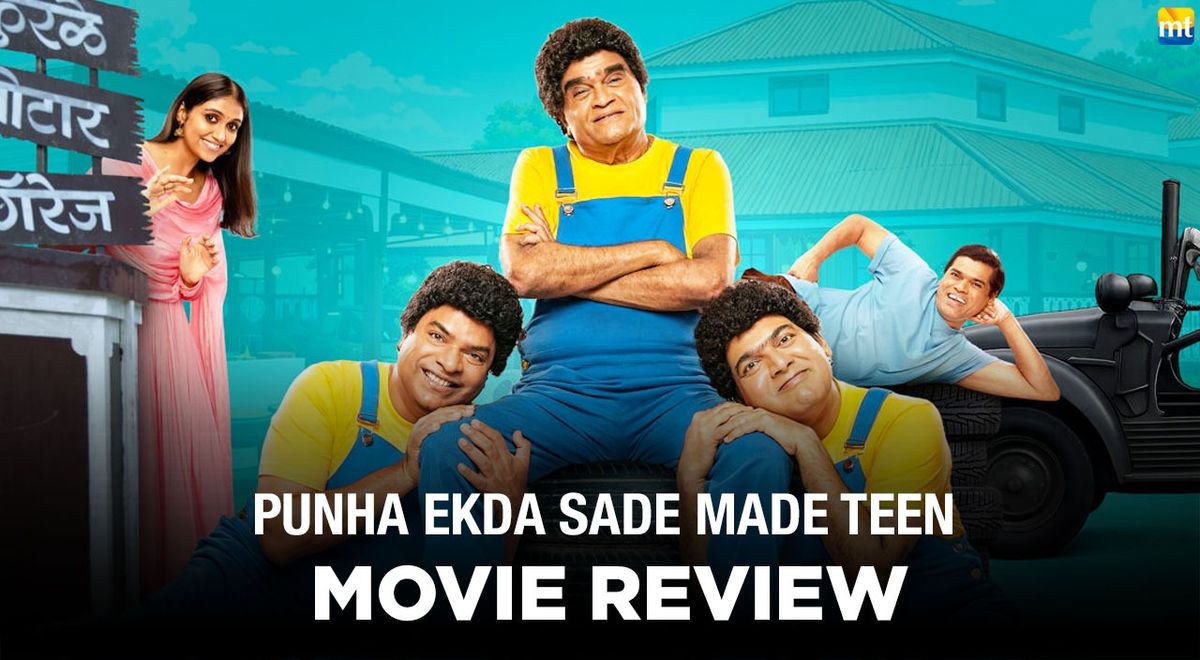
A Sade Made Teen-Style Fun In A Golmaal Again World
